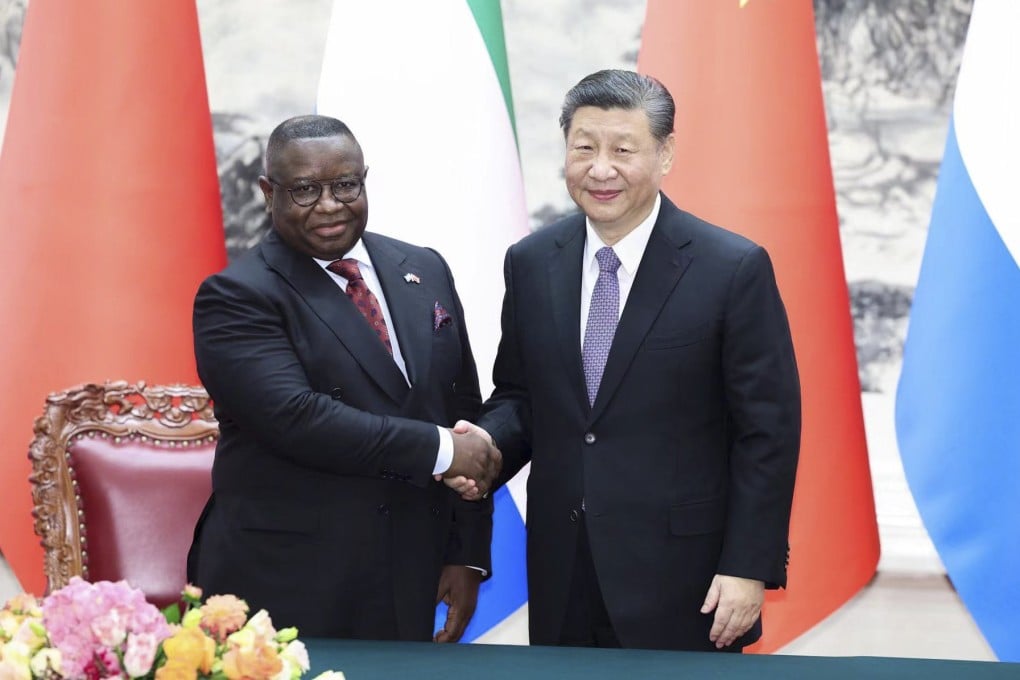Advertisement
Sierra Leone leader’s visit to China shines a light on Xi Jinping’s challenge to the West
- Sierra Leonean President Julius Maada Bio has been in Beijing on a state visit as he and his Chinese counterpart strengthen ties
- Observers say Xi is positioning himself as a leader of the Global South as he challenges the Western dominance of global affairs
Reading Time:4 minutes
Why you can trust SCMP
9

China’s ongoing efforts to challenge the dominance of the West in global governance have been on show this week with the visit of Sierra Leonean President Julius Maada Bio to Beijing.
And according to observers, by winning support from developing countries like Sierra Leone, China is positioning itself as a voice for the Global South – offering an alternative to the largely Western leadership of international affairs.
In a meeting with Bio at the Great Hall of the People in Beijing on Wednesday, Chinese President Xi Jinping said the two countries should strengthen their cooperation at the United Nations Security Council so they could “jointly safeguard the interests of Africa and developing countries”.
Advertisement
Sierra Leone is a non-permanent member of the UN Security Council, representing the interests of African countries, while China is a permanent member of the council with veto power. Africa has long argued that the present global governance system disproportionately favours the West.
“China has always regarded the development of solidarity and cooperation with African countries as an important cornerstone of its foreign policy,” Xi was quoted as saying in a statement released after the talks.
Gyude Moore, a senior policy fellow at the Washington-based Centre for Global Development and a former minister in Liberia, said Africa’s leverage was significantly more political than economic – voting with China at the UN and other international forums.
Advertisement
Advertisement
Select Voice
Select Speed
1.00x
